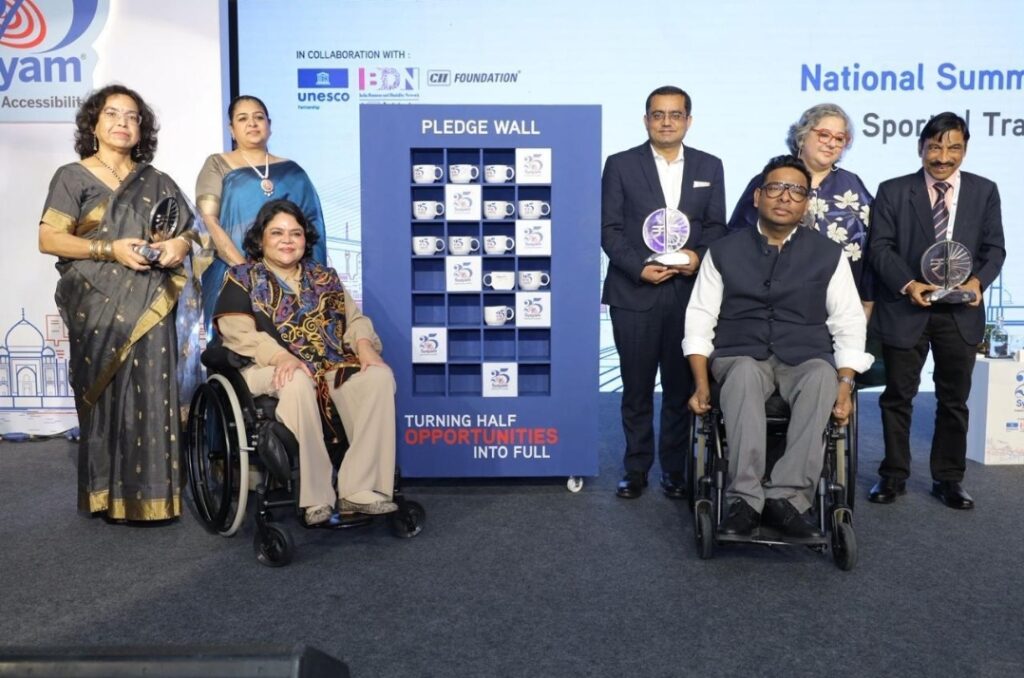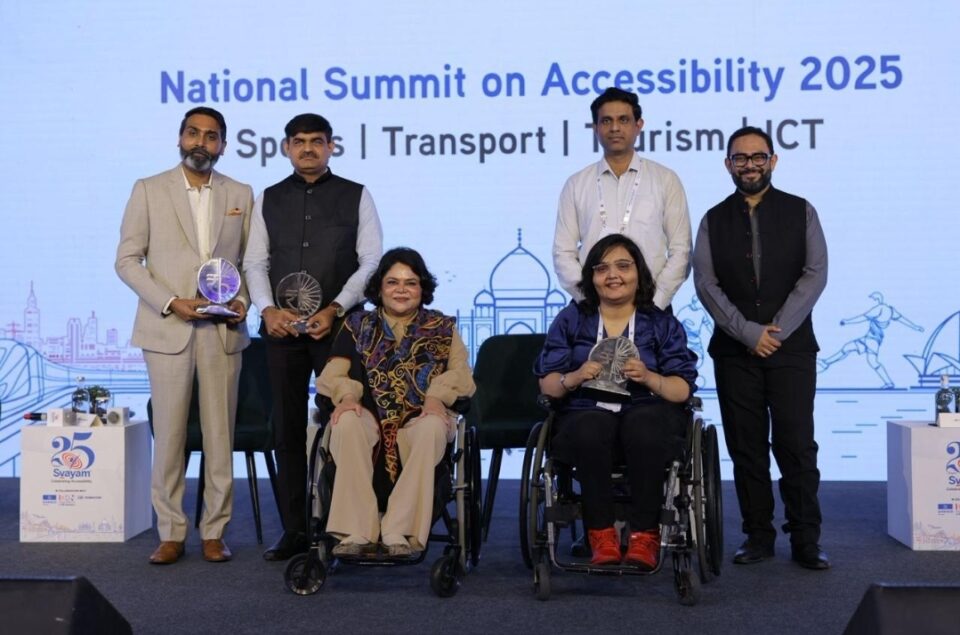India’s CX Revolution: National Summit on Accessibility Sets Agenda for Trillion-Dollar Inclusive Growth
The Real-World Challenge: Accessibility and Economic Potential
Imagine navigating a vibrant city, hoping to experience sporting events, cultural festivals, or seamless travel, but being stopped by an unmarked curb, a steep flight of stairs, or a non-functional elevator. Now multiply this daily frustration by 1.3 billion—the global number of people living with a significant disability. The harsh truth: accessibility remains a formidable barrier not only for individuals but also for economies. Recent insights estimate that India could be facing an annual GDP loss approaching $1 trillion due to gaps in accessibility inclusion across business, infrastructure, and workforce arenas.
For customer experience (CX) and employee experience (EX) professionals, accessibility isn’t merely a compliance checkbox. It’s a central pillar for innovation, market expansion, and sustainable growth. The need to frame accessibility not just as a social responsibility, but a true economic imperative, resounded at the inaugural National Summit on Accessibility 2025 hosted by Svayam in partnership with the Confederation of Indian Industry (CII) and UNESCO.
Kicking Off: A National Dialogue at the Summit
Held at Taj Palace, New Delhi, the Summit on 6 November 2025 assembled a powerhouse lineup of decision-makers: policymakers, planners, technologists, accessibility specialists, and sector leaders. The event’s mission was clear—catalyze a unified national strategy for inclusive infrastructure in sports, tourism, mobility, and digital ecosystems.
Ms. Sminu Jindal, Founder and Chairperson of Svayam, opened the summit by reframing the stakes: “India faces an estimated loss of $1 trillion in its GDP owing to lack of accessibility inclusion in businesses, underscoring the need for accessibility to be viewed as not merely a social responsibility but a true economic imperative for the nation. The National Summit on Accessibility is critical in today’s times where the need to reframe the discourse is urgent and to move beyond welfare considerations in order to position accessibility as a catalyst for national economic growth.”
Her message was echoed by global leaders, including Vice Admiral Krishna Swaminathan (AVSM, VSM), Mr. Tim Curtis, Director, UNESCO Regional Office for South Asia, and Mr. Shombi Sharp, UN Resident Coordinator in India. Their collective call? Reimagine disability as an integral and valuable part of the human condition, with strategies that move past “design standards” towards dignity, inclusion, and opportunity.
The Data and Global Context: Accessibility is Economic Strategy
The magnitude of the challenge is staggering. One in six people worldwide faces a disability, and 80% of them live in developing countries. According to the World Bank and UN statistics, accessible environments directly correlate with higher employment, better health outcomes, and increased economic participation. Globally, accessible tourism alone represents an estimated $8 trillion market opportunity. Case studies from regions like Europe demonstrate that investing in universal design standards results in measurable improvements in public satisfaction, brand loyalty, and long-term profitability for both government and private sectors.
India’s infrastructure and CX ambition is on the world stage, especially as it prepares for mega sporting events and rises as a top travel destination. Accessibility enhancements aren’t just about meeting legal norms—they drive reputation, customer retention, and direct revenues. UNESCO’s International Charter of Physical Education, revised in 2015, designates access to physical activity and sport as a fundamental human right. India’s ability to deliver world-class, inclusive experiences will set benchmarks for growth and attract more tourism, business, and global investment.
White Paper Spotlight: Does Accessibility Make Economic Sense?
A highlight at the Summit was the release of a KPMG India white paper, “Does Accessibility Make Economic Sense?” This pivotal report outlined frameworks for quantifying the ROI of inclusive infrastructure, workforce participation, and universal access. The paper emphasized how investments in accessibility—spanning digital interfaces, public spaces, and customer service—generate significant returns by expanding market reach, reducing long-term costs, and driving innovation.
Key findings:
- Accessible infrastructure reduces lost productivity and absenteeism, boosting business efficiency.
- Universal mobility planning shrinks “transport gaps,” improving workforce participation rates.
- Inclusive digital platforms widen audience access, enhance satisfaction metrics, and mitigate risks associated with litigation or compliance failures.
Panel Insights: Sector-Wise Analysis for CX and EX Professionals
Accessible Games Blueprint: Building the Future
The sports panel, “Accessible Games Blueprint: A Cross-Sectoral Planning Dialogue,” examined best practices in designing. Designing universally accessible stadiums, sports arenas, and public spaces. Panelists such as Vineel Krishna, IAS, and para athlete Ekta Bhyan spotlighted the ripple effect accessible sporting environments can have. That is empowering athletes and welcoming spectators of all abilities.
Actionable insight: CX leaders in sports must invest in digital ticketing platforms. That are with accessible interfaces, sensory-friendly experiences, and real-time support to create memorable, barrier-free events.
Tourism & Culture Accessibility: Welcome All, Everywhere
The tourism panel, “Advancing Inclusive Travel Ecosystems Towards 2030,” tackled the challenges of making India’s vast destinations accessible. From heritage sites to adventure zones, the session highlighted the urgency for inclusive hospitality. It is not just ramps and lifts, but multilingual guides, accessible hotels, and seamless transportation links.
Actionable insight: EX professionals should prioritize staff training in accessibility awareness. That ensures accessible web content, and collaborate with local government to secure infrastructure upgrades. Because, that directly improve customer satisfaction.
Universal Mobility: Connecting the Nation
The mobility panel, “From Barriers to Bridges,” focused on transforming India’s transport networks—rail, metro, air, and last-mile services—to close the accessibility gap. As the panelists noted, barriers to movement translate to barriers in employment, tourism, and daily life.
Actionable insight: Invest in universally designed travel hubs, deploy accessible signage across transit routes, and leverage AI-driven journey planning tools to support travelers with varying needs.

Bridging the Digital Divide: Access for Everyone
The final panel, “Accessibility in ICT & Digital Ecosystems,” explored challenges in making digital platforms inclusive. With speakers from NIC, IIT, and UNESCO, the discussion underscored the impact of accessible information, AI-powered interfaces, and barrier-free e-governance.
Actionable insight: CX practitioners must adopt WCAG accessibility standards, use multilingual content, and implement user testing with people from diverse backgrounds to improve digital journey outcomes.
The Outcome: National Roadmap for Accessibility
In closing, the Summit established consensus on building a national accessibility roadmap aligned with India’s ambitious Viksit Bharat @2047 vision. Inclusion is now recognized as a national priority—not just for marginalized communities, but for the benefit of every citizen and the nation’s global standing.
Svayam, the not-for-profit accessibility pioneer founded by philanthropist-business leader Sminu Jindal, will play a pivotal role in shaping policy, supporting innovation, and engaging stakeholders to sustain momentum.
Expert Commentary: Accessibility as CX/EX Strategy
Accessibility must move from margin to mainstream in every CX and EX strategy. Leading organizations treat accessibility as a “design for all” philosophy, not a compliance-led afterthought. For example, hospitality leaders like Marriott International have proven that accessible design results in higher occupancy rates, improved guest satisfaction, and better brand reputation.
Similarly, digital-first efforts by global companies have shown that accessible platforms lead to greater engagement, longer visits, and lower bounce rates. The emergence of “inclusive leadership” in CX teams—those who directly incorporate accessibility metrics into NPS, CSAT, and EX scorecards—has propelled transformative change.
Practical Takeaways for CX/EX Leaders
- Lean into inclusive design at the earliest planning stages.
- Champion accessibility as a core business and CX metric—tie it directly to customer satisfaction, retention, and revenue.
- Invest in staff training, especially for front-line employees, to foster empathy and awareness.
- Collaborate across sectors to drive accessible infrastructure: sports, tourism, transit, and digital.
- Use technology—AI, multilingual platforms, virtual assistants—to bridge the accessibility gap.
- Measure success by tracking accessibility-related KPIs and incorporating user feedback from people with varying abilities.
- Engage with advocacy organizations like Svayam and global policy partners to stay aligned with best practices.
- Communicate the economic value of accessibility to stakeholders, positioning inclusion as crucial to India’s competitive edge.
Conclusion: The Path Forward
The National Summit on Accessibility 2025 clarified one thing. That, accessibility is not only the right thing to do, but the smart thing to do for India’s trillion-dollar economy. For CX and EX professionals, now is the time. To elevate accessibility from the periphery to the heart of every strategy. The journey toward Viksit Bharat @2047 depends on making every experience, every interaction, and every space genuinely open to all.
Inclusive growth is India’s greatest opportunity. The question for every leader: Will you be at the forefront of change or risk being left behind?

